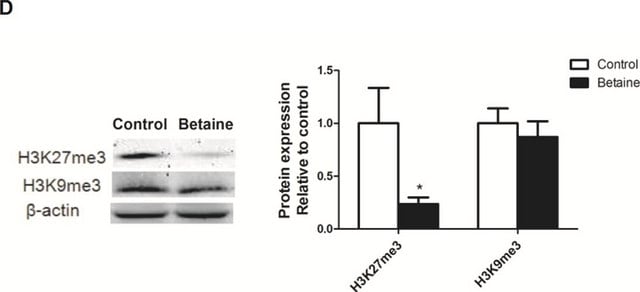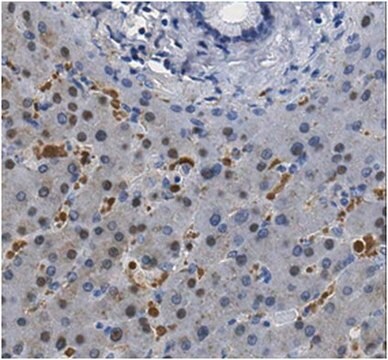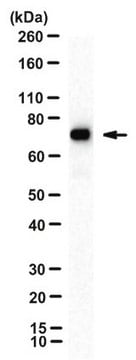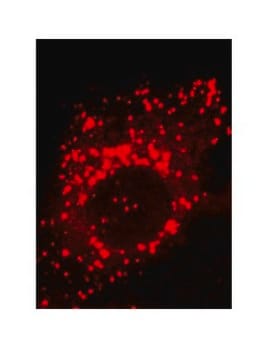MABS1920
Anti-IRF-9 Antibody, clone 6F1-H5
clone 6F1-H5, from mouse
Sinónimos:
Interferon regulatory factor 9, IFN-alpha-responsive transcription factor subunit, ISGF3 p48 subunit, Interferon-stimulated gene factor 3 gamma, ISGF-3 gamma, Transcriptional regulator ISGF3 subunit gamma
About This Item
Productos recomendados
biological source
mouse
Quality Level
antibody form
purified immunoglobulin
antibody product type
primary antibodies
clone
6F1-H5, monoclonal
species reactivity
mouse
should not react with
human
packaging
antibody small pack of 25 μg
technique(s)
ChIP: suitable
western blot: suitable
isotype
IgG2aκ
NCBI accession no.
UniProt accession no.
shipped in
ambient
target post-translational modification
unmodified
Gene Information
mouse ... Irf9(16391)
General description
Specificity
Immunogen
Application
Signaling
Quality
Western Blotting Analysis: 0.5 µg/mL of this antibody detected IRF-9 in 10 µg of mouse spleen tissue lysate.
Target description
Physical form
Storage and Stability
Other Notes
Disclaimer
¿No encuentra el producto adecuado?
Pruebe nuestro Herramienta de selección de productos.
Storage Class
12 - Non Combustible Liquids
wgk_germany
WGK 1
Certificados de análisis (COA)
Busque Certificados de análisis (COA) introduciendo el número de lote del producto. Los números de lote se encuentran en la etiqueta del producto después de las palabras «Lot» o «Batch»
¿Ya tiene este producto?
Encuentre la documentación para los productos que ha comprado recientemente en la Biblioteca de documentos.
Nuestro equipo de científicos tiene experiencia en todas las áreas de investigación: Ciencias de la vida, Ciencia de los materiales, Síntesis química, Cromatografía, Analítica y muchas otras.
Póngase en contacto con el Servicio técnico








